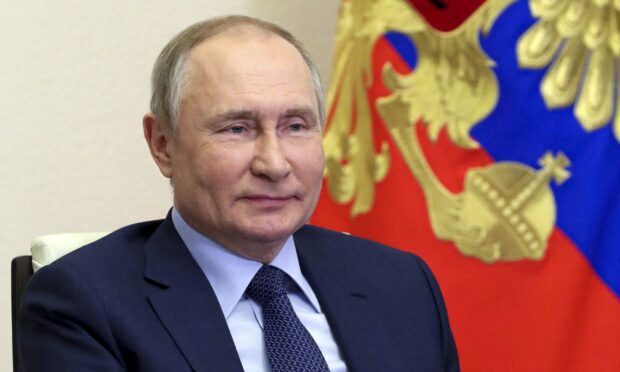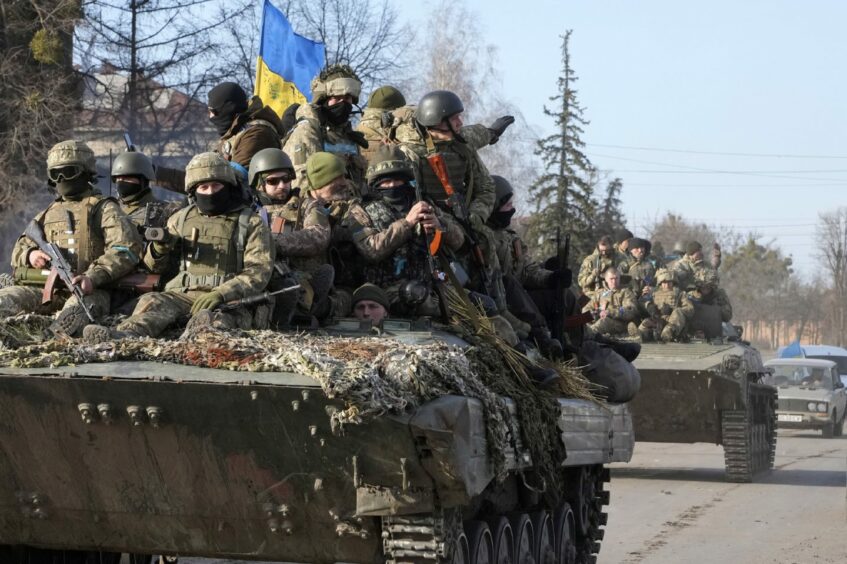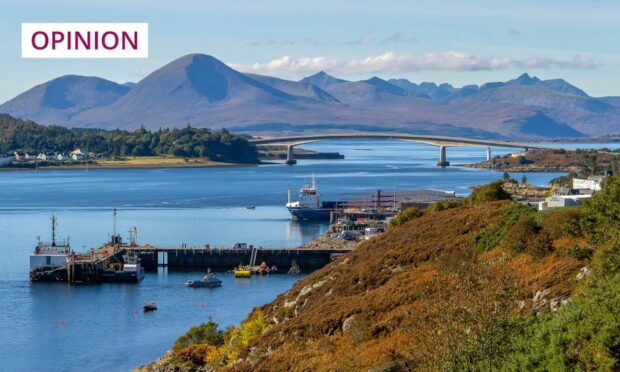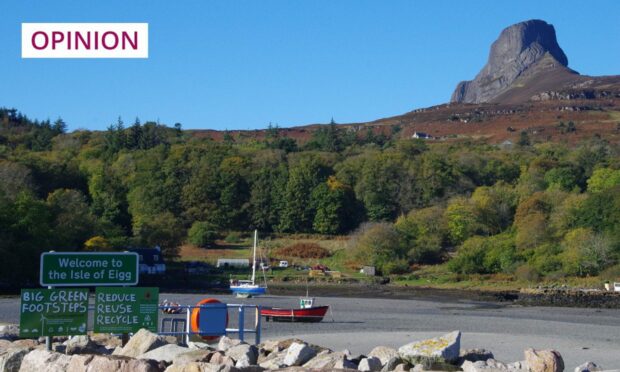One hesitates to add to the acres of comment devoted to Russia’s horrifying war in Ukraine. But a story my late father-in-law used to tell recently came to mind.
It was about a female Glasgow clippie (for younger generations the conductor who used to sell tickets to passengers in their seats as the bus was being driven). She was being chatted up by American soldiers in World War Two.
One was particularly insistent asking: “Do you not think you should be friendlier to those who are saving you from Nazi Germany?”
She replied “Sorry sir, I didn’t recognise your Russian accent.”
It was a quick-witted response. More importantly, it spoke to the extraordinary losses the Russian people had to endure. By the time the first GIs arrived in Britain at the end of January 1942, Leningrad (now St Petersburg again) had been besieged for five months, and had two further years to go.
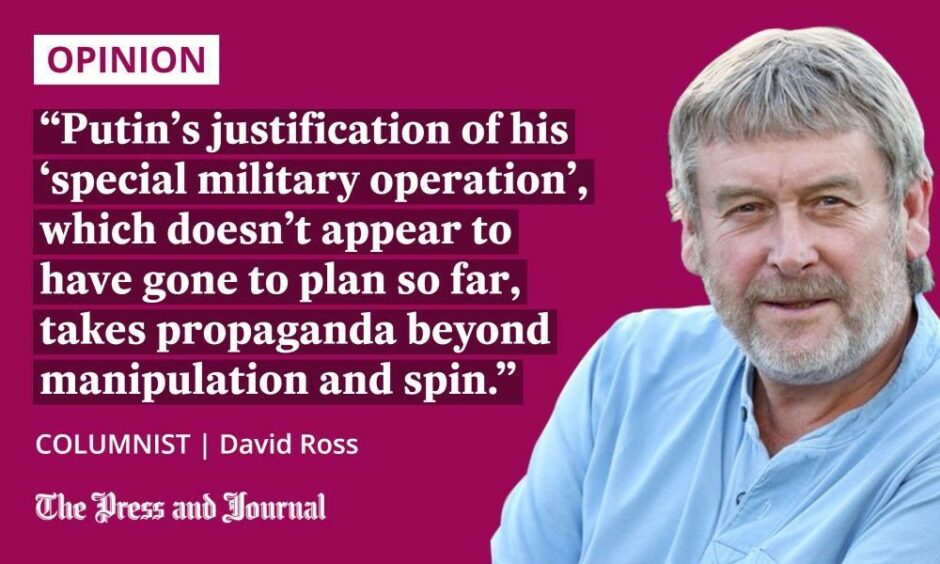
The USSR’s war dead have been estimated as between 20m and 27m, of whom around 10m were civilians who died because of military activity. There was an additional 8m to 9m deaths due to famine and disease.
But wars end, and Russia/USSR eventually forged a relationship with Germany, albeit one that meant half of that country being under communist rule for 45 years. It will take Ukraine long enough to forgive this war, which may well change Europe for a generation.
Russians have had little luck with leaders
There can be little doubt that after the end of the cold war, some in the West contributed to the economic chaos that engulfed Yeltsin’s Russia and facilitated Putin’s rise. Nato’s expansion to embrace states on the Russian border, also had consequences.
British governments would not have been happy with a Warsaw Pact country across the English Channel. Indeed some British governments have appeared less than happy about the French being across the channel. But Nato’s enlargement, reinforced Putin’s view of history.
The Russians have had little luck in their leaders, from the Tsars through Stalin to their current president. Many of them will accept the narrative being promoted by their government today.
There have, of course, been plenty of official narratives promoted in the West, to cover what otherwise would have been a source of public shame. Bloody Sunday in Derry in 1972, to the US Navy’s cruiser shooting down the Iranian passenger jet in 1988 and the invasion of Iraq in 2003 spring to mind.
But Putin’s justification of his “special military operation”, which doesn’t appear to have gone to plan so far, takes propaganda beyond manipulation and spin.
It was to “demilitarise and de-Nazify Ukraine”, a country whose elected head is Jewish.
Are the Russian people aware of what Putin is really doing in Ukraine?
It was to protect Russian-speaking people from genocide. Tell that to the predominantly Russian-speaking residents, or former residents of Mariupol who survived to see their homes and hospitals rendered to rubble.
We do not know if the Russian people are aware of what is being done in their name. Nor do we know whether they would believe it worth the blood of their young soldiers or that of innocent civilians, for Putin to bring Ukraine back under Russian control. Possibly even end its nationhood.
Putin’s close ally and supporter, Patriarch Kirill of Moscow, made it clear that he regarded the Russian campaign as a war to defend Orthodox civilisation against Western corruption, writes Rowan Williams.https://t.co/olUa0Nd380
— The New Statesman (@NewStatesman) March 18, 2022
The two countries have been inextricably linked since the 9th Century and the first Slavic state ‘Kyivan Rus’, held to be birthplace of both Ukraine and Russia. That obviously matters to President Putin. Worryingly, he is not alone.
In a recent article the former Archbishop of Canterbury Rowan Williams warned of a sermon delivered on March 6th by the Orthodox Patriarch Kirill of Moscow and all Russia. Kirill apparently made clear he saw Putin’s campaign as one to defend Orthodox civilisation against Western corruption. Gay pride marches were highlighted as an important symbol of this corruption.
Putin’s lie has travelled around globe
There can be few among the 75% of Ukraine’s population identifying themselves as Orthodox, who share the patriarch’s analysis. Some may well wonder if they still worship the same god.
But while most in the West accept the immorality of Putin’s war, and reject that ‘we’ pose an existential threat to Russia, not everyone is seeing it that way. Russia Today (RT) and the state-owned news service Sputnik are reportedly thriving in South America.
"China’s social media, specifically Weibo, have also become a battleground of the global public opinion war, and Weibo is now at the forefront of the Russia-Ukraine cyberwar. Before the war happened, it already started on Weibo." Read: https://t.co/dLDWQBagcA pic.twitter.com/HhZmS8ZMRW
— Manya Koetse (@manyapan) March 3, 2022
Meanwhile a study showed that 50% of posts examined on the Chinese social media platform Weibo, supported the Russian explanation that the war was the fault of the West, Nato or Ukraine. There has been similar support in sub-Saharan Africa.
What was it Mark Twain said about the global travelling time of a lie, compared to the truth?
David Ross is a veteran Highland journalist and author of an acclaimed book about his three decades of reporting on the region
